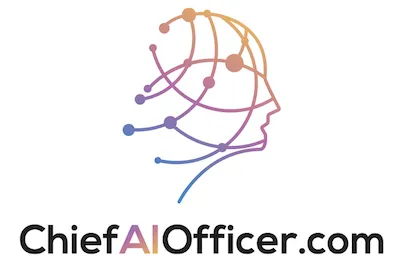
Insights from Sanjay Cherian: Navigating Enterprise-Level Generative AI Deployments
Navigating Enterprise-Level Generative AI Deployments: Insights from Sanjay Cherian
The Birth of an AI Strategy at Nike
When ChatGPT was released in December 2022, it created a wave of interest among enterprise-level executives. Nike's CEO was fielding questions from peer CEOs about generative AI, prompting the company to develop a comprehensive strategy. Sanjay stepped up to lead this initiative, exploring how Nike could leverage this technology across its value chain.
"Unlike some other hype cycles we've seen with technology like blockchain or NFTs, a lot of operators were talking about how they could actually take advantage of this," Sanjay explains. "This is something real."
The Nike team initially focused on two key questions:
How could AI make knowledge workers more productive?
How could AI enhance product innovation?
After identifying over 100 potential use cases, they prioritized just 10 based on investment requirements and business cases. This methodical approach ensured they focused on applications that would deliver real value.
Where AI Delivers Real Value
According to Sanjay, businesses should look at three main categories when evaluating AI use cases:
Productivity improvements - Making teams faster and more efficient
Cost savings - Reducing expenses, particularly third-party costs
Revenue generation - Creating new opportunities, especially in e-commerce
For companies just starting their AI journey, Sanjay recommends focusing on these low-hanging fruit:
Software development - Using AI co-pilots can significantly speed up coding projects
Knowledge worker productivity - Leveraging AI for drafting documents, from marketing briefs to legal contracts
Customer interactions - Implementing conversational AI for better search functionality and shopping assistance
The Right Leadership for AI Initiatives
One of the most important insights Sanjay shares is about who should lead AI initiatives within organizations. Contrary to what many might assume, he strongly believes this shouldn't be primarily technology-led.
"This is not something that should be driven from the technology organization," Sanjay emphasizes. "You need someone more like a Chief AI Officer who understands business, workflow transformation, and value creation, and is able to mobilize the organization around an initiative that's really going to drive value."
The ideal leader for AI initiatives should:
Understand business operations deeply
Have good relationship management skills
Be metrics-driven
Have sufficient technical knowledge to work effectively with the CIO's office
Sanjay suggests looking in transformation offices or operations groups for individuals who might be well-suited to lead AI initiatives after receiving appropriate upskilling.
Avoiding Common Pitfalls
When hiring external experts to help with AI implementation, Sanjay advises looking for:
Practical experience - Have they actually implemented AI solutions before?
Focus on business value - Are they proposing actionable ideas that will deliver value quickly?
Ability to engage your team - Can they build internal capability rather than creating dependency?
Red flags to watch out for include:
Experts who push for deep investment in technology before establishing clear business value
Proposals that don't involve business units in the decision-making process
Approaches that don't include training for the people who will use the technology
Managing Change and Addressing Fears
As AI transforms workplaces, managing the narrative is crucial to prevent fear and resistance. Sanjay recommends focusing on how AI creates new sources of value rather than just automating existing processes.
"We're going to see technology shifts and macro movements of jobs and labor markets move," he notes. "This one has more promise."
A clever approach Sanjay has used is to engage skeptics by making them leaders of AI initiatives. "It's oftentimes the naysayers who are questioning 'Well, how would you do it?' Engaging them in that way and putting them in leadership positions can shift their mindset."
The Future with 113 Labs
With 113 Labs (a name referencing the concept that 1+1=3 through synergy), Sanjay aims to help companies implement AI effectively without requiring massive investments in consultants or technology.
"What we're trying to think about at 113 Labs is how to bring strategic thinking and core strategic skills, apply them in AI, and deliver projects to get squads in these companies actually rolling up their sleeves and doing this work," he explains.
Their approach focuses on empowering internal teams with the skills and methodology needed to become self-sufficient, creating what Sanjay calls "the next generation of leaders in these companies."
Key Takeaways for Businesses
Start with business outcomes, not technology
Focus on use cases that deliver clear value
Invest in upskilling your team rather than just buying tools
Create a culture of experiential learning rather than relying solely on formal training
Look for ways AI can create new value, not just automate existing processes
As Sanjay puts it, "We're in this 1996 moment" - referring to the early days of the internet. The companies that embrace AI strategically now will be the ones that thrive in the future.
FAQ
What skills does a Chief AI Officer need? A Chief AI Officer needs a blend of business acumen, understanding of workflow transformation, and sufficient technical knowledge to work effectively with technology teams. They should be metrics-driven and have excellent relationship management skills.
How should companies start their AI journey? Companies should begin by mapping business workflows to identify where AI can add value, rather than starting with the technology. Create a squad led by business leaders who understand operations, develop a library of use cases, and prioritize them based on potential value.
What are the most accessible AI applications for businesses? Software development, knowledge worker productivity (especially drafting documents), and customer interactions (like conversational search) are areas where companies can quickly see benefits from AI implementation.
How can companies address fears about AI replacing jobs? Focus on how AI creates new sources of value and frees people from mundane tasks to focus on more strategic work. Consider engaging skeptics by making them leaders of AI initiatives to shift their mindset.
What should companies look for when hiring AI consultants? Look for practical experience implementing AI solutions, a focus on delivering business value quickly, and the ability to build internal capability rather than creating dependency. Be wary of consultants who push for large technology investments before establishing clear business value.

